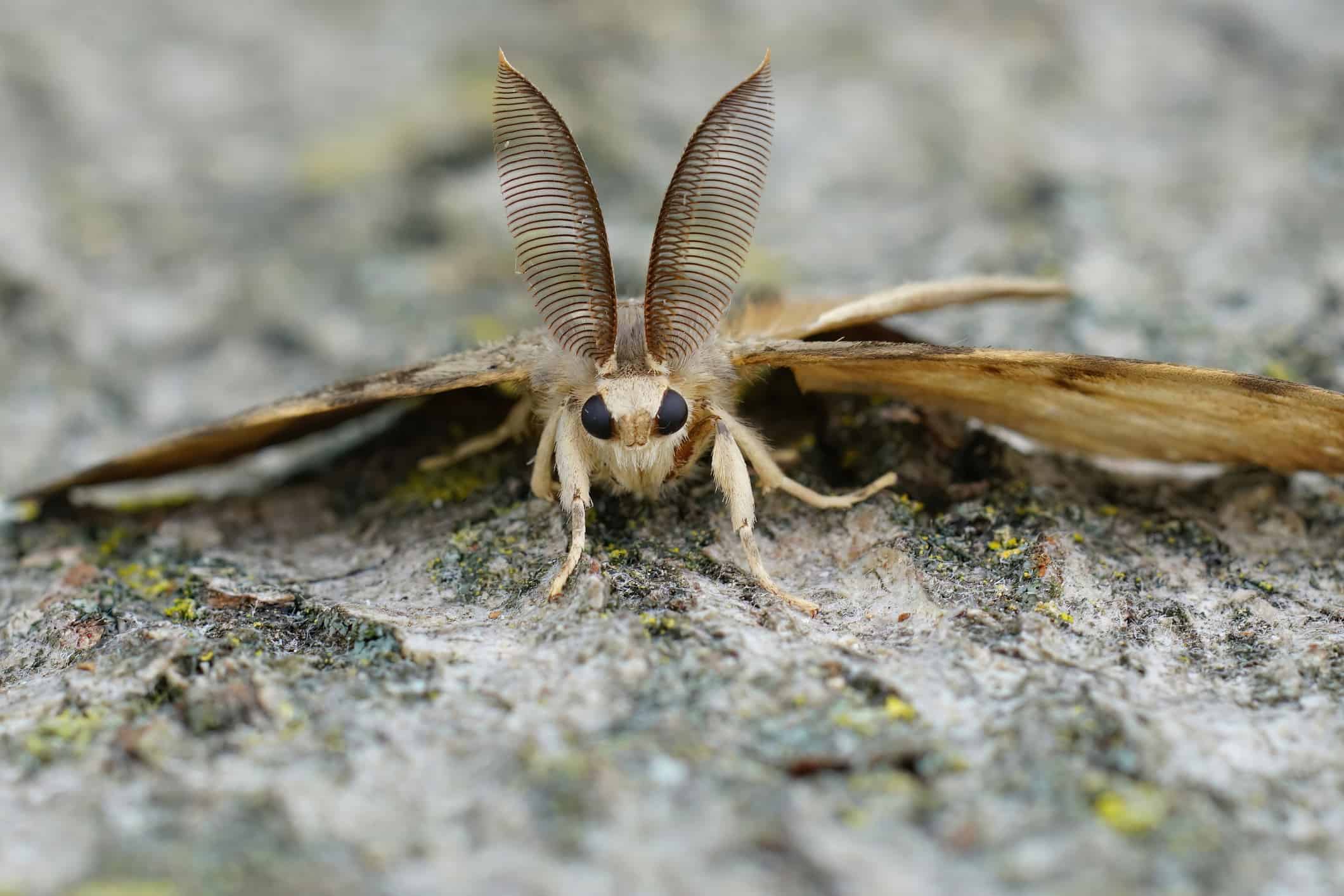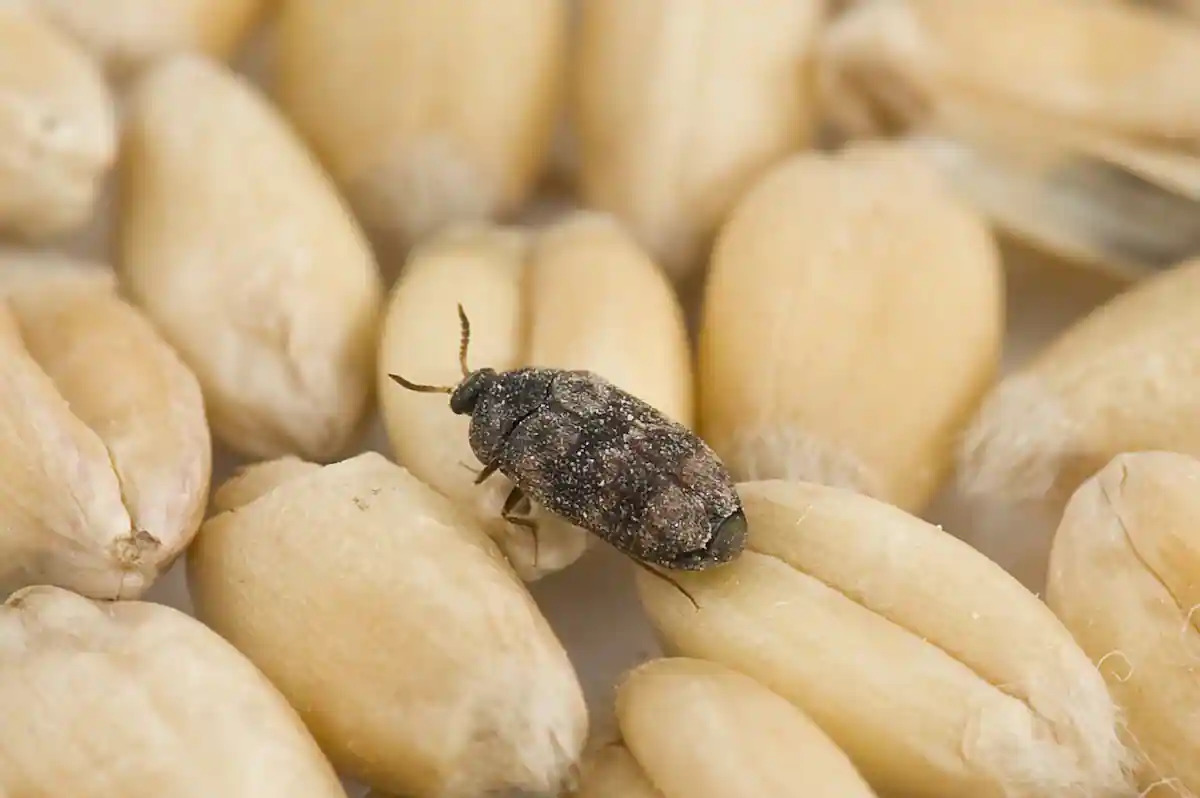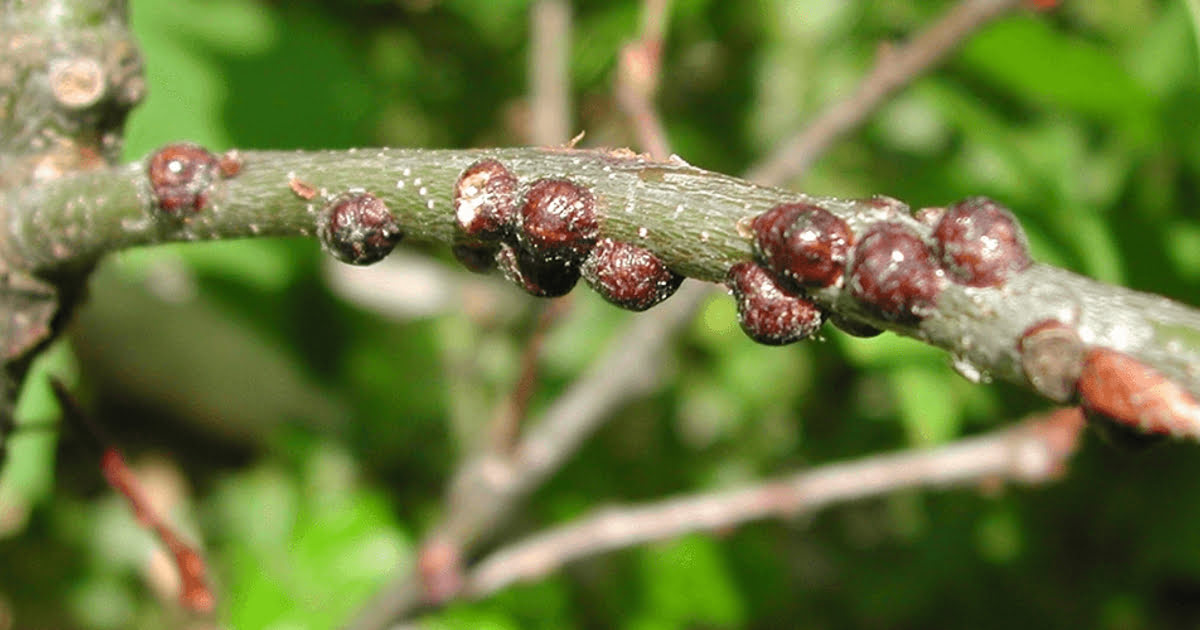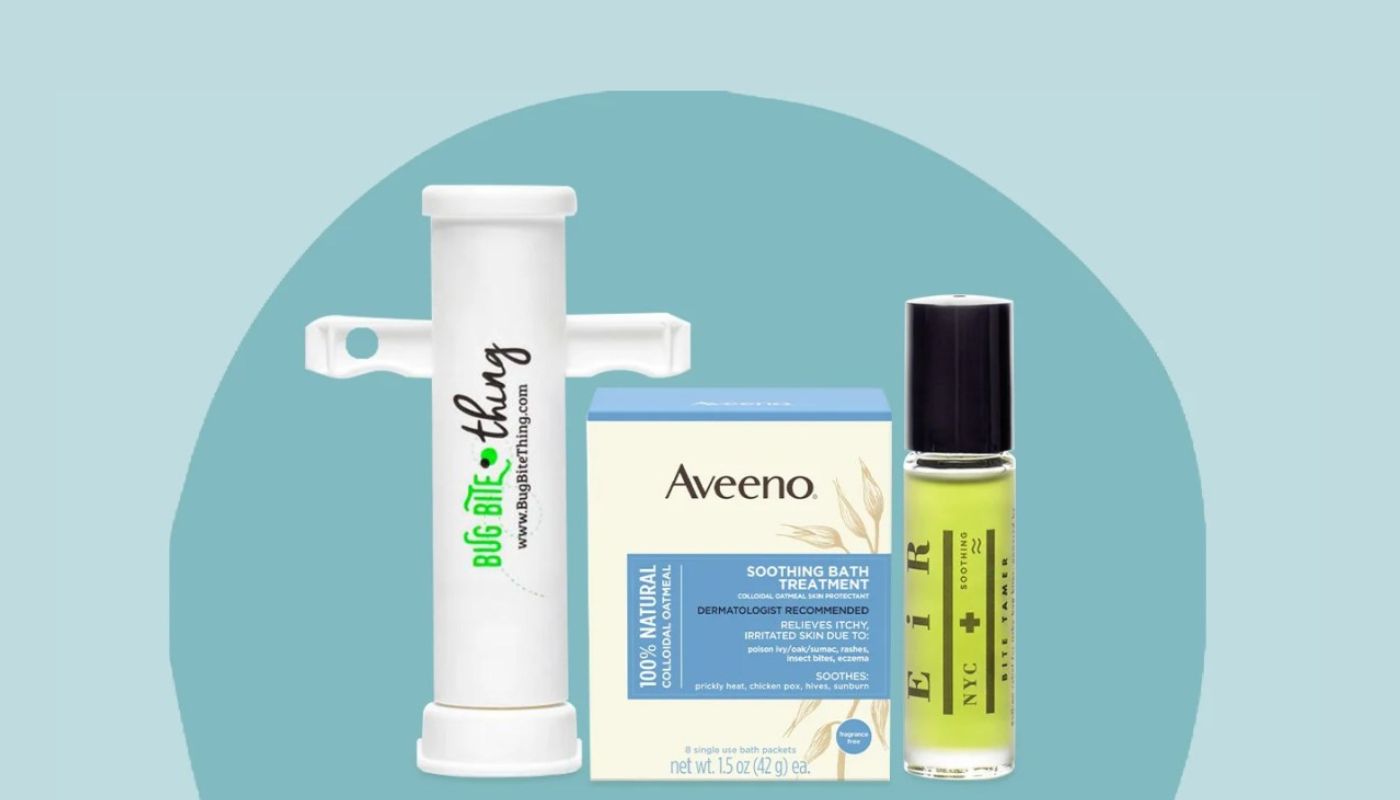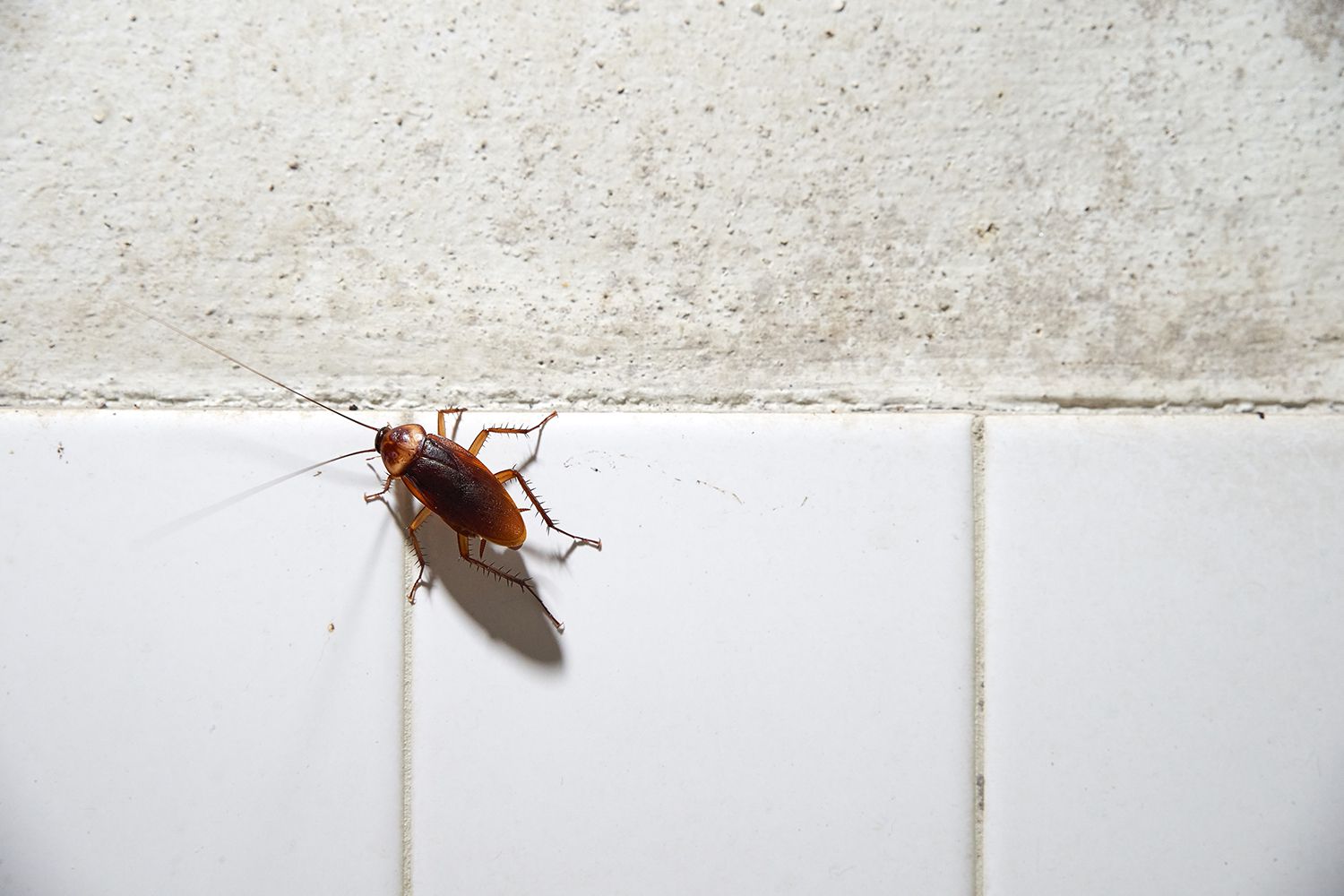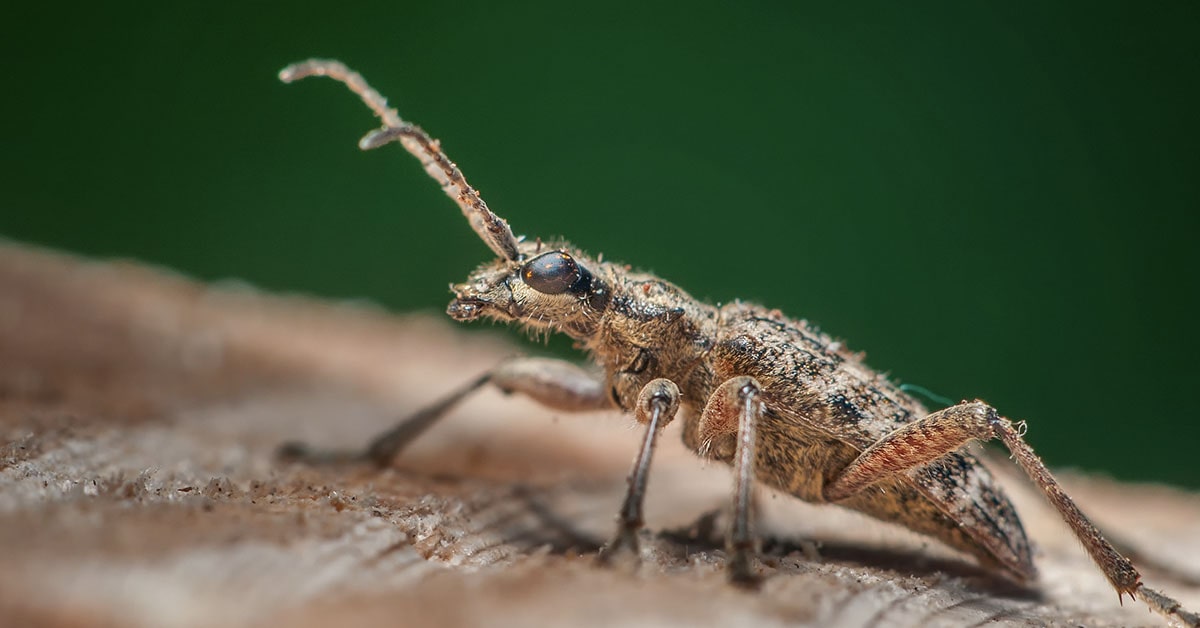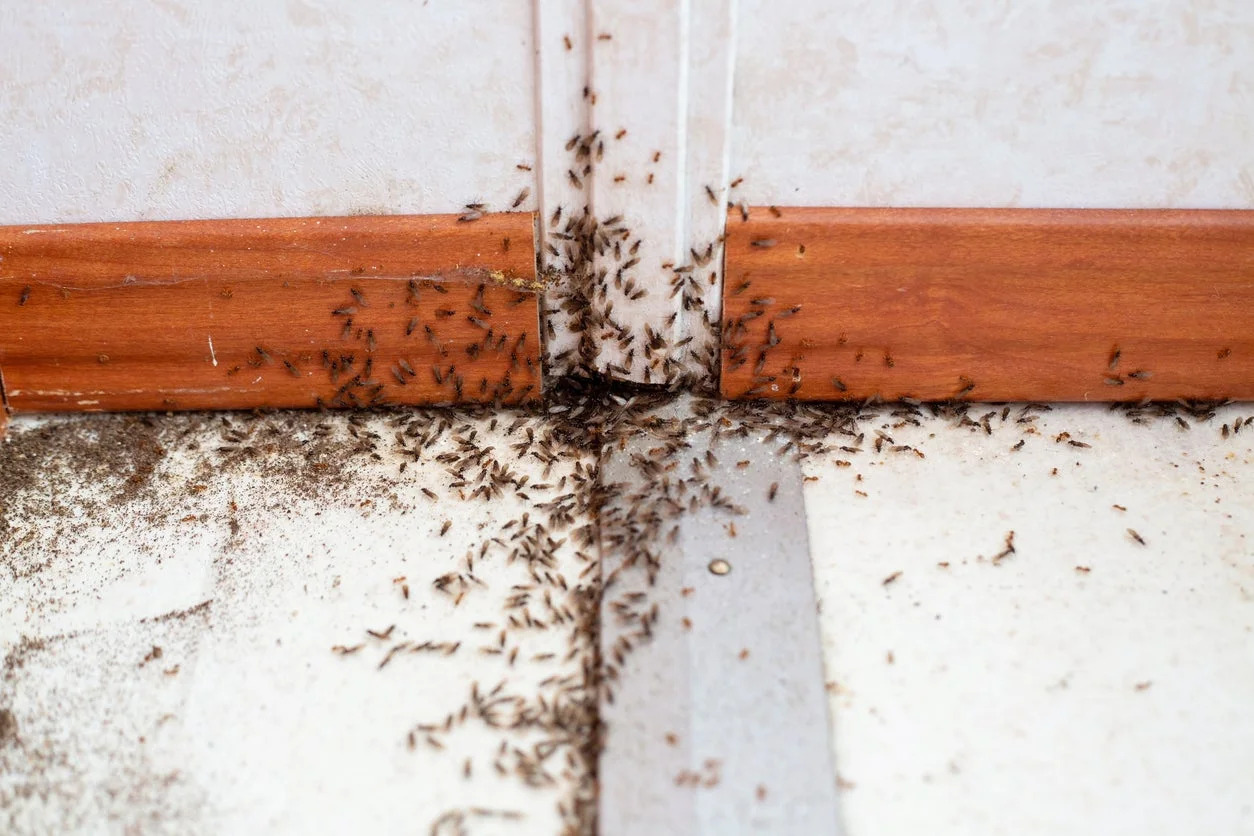Home>Gardening Tips and Tricks>Problem Solving>How To Repel Insects From Biting You
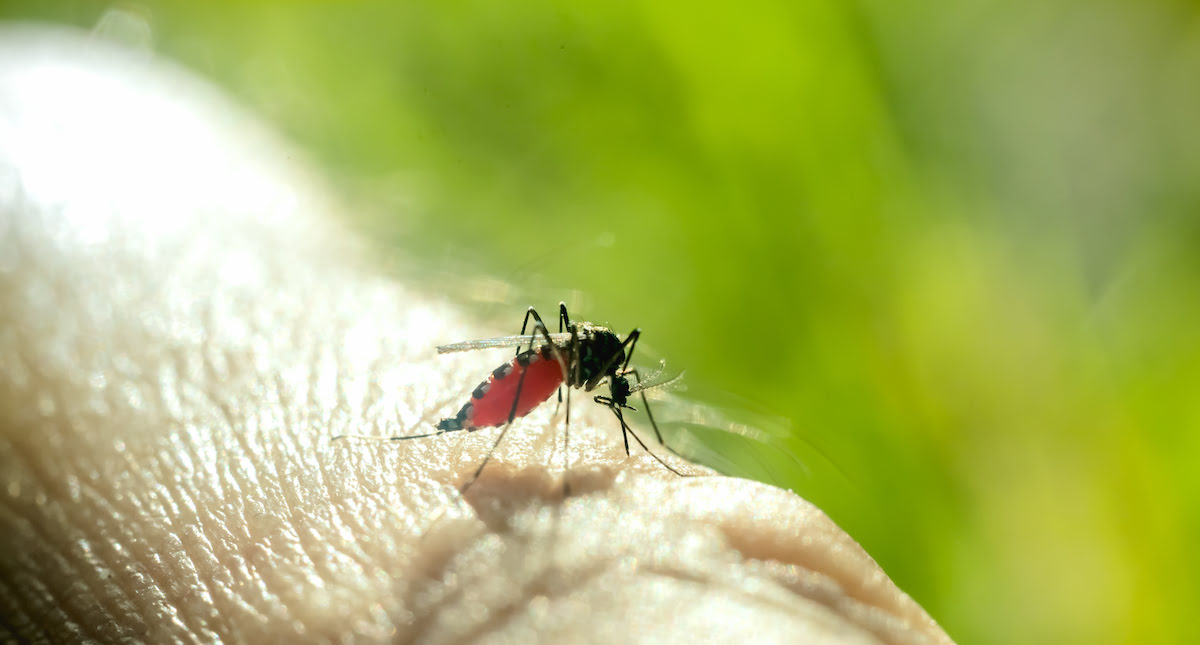

Problem Solving
How To Repel Insects From Biting You
Modified: January 22, 2024
Learn effective strategies for repelling insects and preventing painful bites. Discover problem-solving techniques to keep bugs at bay and enjoy your outdoor activities without the nuisance.
(Many of the links in this article redirect to a specific reviewed product. Your purchase of these products through affiliate links helps to generate commission for Chicagolandgardening.com, at no extra cost. Learn more)
Table of Contents
Introduction
Welcome to our comprehensive guide on how to repel insects from biting you. Whether you’re spending time outdoors, enjoying a picnic at the park, or simply relaxing in your backyard, insects can quickly ruin your experience by leaving itchy and irritating bites. From mosquitoes and ticks to flies and gnats, these pesky creatures can be a nuisance and even pose health risks. Thankfully, there are various natural and effective methods to repel these insects and keep them at bay.
Understanding insect bites is the first step in combating them. When insects, such as mosquitoes and ticks, bite, they inject saliva into our skin to prevent blood clotting. It’s the reaction to this saliva that causes the itching, swelling, and redness we commonly experience. By repelling insects, we can minimize the chances of getting bitten and avoid the uncomfortable aftermath.
In this article, we’ll explore different natural repellents that can be easily incorporated into your daily routine. We’ll delve into the power of essential oils and the plants that repel insects. We’ll also share some DIY insect repellent recipes that you can easily make at home with common household ingredients. Additionally, we’ll discuss clothing and accessories that provide added protection against insect bites. Finally, we’ll explore other effective ways to repel insects beyond just using sprays and lotions.
So, if you’re tired of constantly swatting away bugs or being covered in itchy mosquito bites, read on! We’ve got you covered with tips, tricks, and natural solutions to help you enjoy the great outdoors without the annoyance of insect bites.
Understanding insect bites
In order to effectively repel insects, it’s important to have a basic understanding of how and why they bite. When insects bite, such as mosquitoes, ticks, and fleas, they are seeking nourishment in the form of blood. Female mosquitoes are particularly notorious for biting as they require the protein found in blood to produce eggs. When they bite, they pierce the skin and inject saliva into the wound, which contains an anticoagulant to prevent blood from clotting.
It is the proteins in the insect’s saliva that trigger our body’s immune response, leading to the characteristic itching, redness, and swelling that we experience after being bitten. Everyone’s reaction to insect bites varies, with some individuals experiencing mild irritation while others might have more intense allergic reactions.
While insect bites are generally harmless, they can sometimes lead to more serious consequences. Mosquitoes, for example, are known carriers of diseases such as malaria, dengue fever, and West Nile virus. Ticks can transmit Lyme disease and other tick-borne illnesses. Therefore, preventing insect bites not only provides relief from discomfort but also helps protect against potential health risks.
It’s important to note that insects are attracted to various factors that make us more susceptible to bites. Body heat, sweat, carbon dioxide, and even certain scents from lotions or perfumes can attract insects. Additionally, darker-colored clothing can make us more visible targets.
By understanding why insects bite and what attracts them, we can take proactive measures to repel them and minimize the chances of getting bitten. In the following sections, we’ll explore natural repellents and strategies that can effectively ward off these pesky insects.
Natural repellents for insects
When it comes to repelling insects, there are a variety of natural remedies that can be used as alternatives to conventional chemical-based repellents. These natural options not only help deter insects but also offer safer and more environmentally friendly solutions. Here are some effective natural repellents:
- Citronella: Derived from the leaves of the Cymbopogon plant, citronella is a popular natural repellent. Citronella oil can be found in candles, torches, and sprays, and its distinctive fragrance acts as a deterrent for mosquitoes and other flying insects.
- Lemon eucalyptus oil: This essential oil is extracted from the leaves of the lemon eucalyptus tree and has been recognized as an effective repellent by the Centers for Disease Control and Prevention (CDC). It provides protection against mosquitoes and other biting insects for several hours.
- Peppermint oil: The strong scent of peppermint oil acts as a deterrent for various insects, including mosquitoes, ants, and spiders. You can dilute peppermint oil with water and spray it around your home or apply it to your skin to repel bugs.
- Neem oil: This oil is derived from the neem tree and has multiple benefits, including insect repellent properties. Neem oil can be mixed with a carrier oil, such as coconut oil, and applied to the skin to repel mosquitoes, ticks, and other biting bugs.
- Clove oil: Clove oil has a strong and pungent scent that insects find unpleasant. It can be used as an ingredient in homemade repellent sprays or mixed with a carrier oil and applied to the skin to repel mosquitoes and other insects.
These natural repellents can be applied to the skin, used in diffusers, or sprayed around your living areas to ward off insects. It’s important to note that some essential oils need to be diluted with a carrier oil before direct application to the skin to prevent skin irritation.
Remember, while these natural repellents can be effective, their effectiveness may vary depending on the specific circumstances and the types of insects you are dealing with. It’s always a good idea to test a small area of your skin for any adverse reactions before widespread use.
Essential oils for repelling insects
Essential oils have gained popularity as natural alternatives for repelling insects. These concentrated plant extracts contain powerful compounds that insects find unpleasant, helping to keep them at bay. Here are some essential oils known for their insect-repelling properties:
- Lavender oil: Known for its calming scent, lavender oil also acts as a natural insect repellent. It is particularly effective against mosquitoes, flies, and moths. You can apply a few drops of lavender oil to your skin or mix it with water to create a spray for your living areas.
- Tea tree oil: Tea tree oil has antimicrobial and insecticidal properties, making it an effective option for repelling insects. It is especially useful against fleas, ticks, and ants. Dilute tea tree oil with water or a carrier oil and apply to your skin or use it to clean and disinfect your living spaces.
- Eucalyptus oil: Eucalyptus oil has a strong scent that deters mosquitoes and other insects. It contains a compound called cineole that acts as a natural repellent. Use it in a diffuser, apply it to your skin after diluting it with a carrier oil, or add a few drops to your laundry to repel insects.
- Peppermint oil: Not only does peppermint oil have a refreshing aroma, but it also repels a variety of insects. Mosquitoes, ants, spiders, and even mice find the scent of peppermint oil unpleasant. Dilute it with water or a carrier oil and spray it around your home or apply it to your skin to repel bugs.
- Citronella oil: Citronella oil, derived from the citronella grass, is a well-known natural insect repellent. Its strong and distinct citrus scent repels mosquitoes, flies, and other biting insects. Use citronella oil in candles, diffusers, or apply it to your skin after diluting it with a carrier oil.
When using essential oils, it’s important to remember that they are highly concentrated and should be handled with care. Always follow the instructions for dilution and application to avoid skin irritation or allergic reactions. Additionally, essential oils should not be ingested.
While essential oils can be effective in repelling insects, it’s worth mentioning that their effectiveness usually lasts for a shorter duration compared to conventional chemical repellents. Therefore, reapplication may be necessary, especially if you are spending an extended time outdoors or in heavily infested areas.
Plants that repel insects
Nature provides us with an abundance of plants that naturally repel insects. By incorporating these plants into your garden or indoor spaces, you can create a natural barrier against pesky bugs. Here are some plants known for their insect-repelling properties:
- Lemon balm: Lemon balm, belonging to the mint family, releases a strong lemony fragrance that repels mosquitoes and other flying insects. Plant lemon balm in pots or in your garden to deter these pests.
- Lavender: Not only is lavender oil a natural insect repellent, but the plant itself also acts as a deterrent. Its beautiful purple blooms and distinctive fragrance repel mosquitoes, flies, and moths.
- Marigold: Marigolds are not only vibrant and colorful, but they also emit a scent that repels mosquitoes and aphids. Plant marigolds in your garden or use them as border plants to keep insects at bay.
- Citronella grass: The well-known citronella grass is commonly used in candles and torches to repel mosquitoes. Planting citronella grass in your garden can naturally deter these biting bugs.
- Basil: Basil is not just a versatile herb for culinary delights; it also has insect-repelling properties. Plant basil near windows and entryways to deter flies and mosquitoes from entering your home.
- Peppermint: The strong scent of peppermint is both refreshing to us and repelling to insects. Growing peppermint in pots around your patio or garden can help keep mosquitoes and ants away.
These plants not only serve as natural insect repellents but also add beauty and fragrance to your surroundings. Additionally, some plants, such as catnip and lemongrass, can attract beneficial insects like bees and butterflies while still repelling pests.
Remember, when planting these insect-repelling plants, consider the specific climate and growing conditions in your area to ensure their success. Regularly prune and care for these plants to maximize their insect-repellent properties.
DIY insect repellent recipes
If you prefer a hands-on approach and want to avoid commercial insect repellents, you can easily make your own DIY insect repellents using natural ingredients. Here are a few simple and effective recipes:
- Lemon eucalyptus spray: Combine 10 drops of lemon eucalyptus oil with 1 tablespoon of witch hazel and 3 tablespoons of water. Shake well and pour into a spray bottle. This spray is effective against mosquitoes and other flying insects.
- Vinegar and essential oil blend: Mix equal parts of apple cider vinegar and water in a spray bottle. Add 10 drops of essential oil, such as citronella, lavender, or peppermint. Shake well before each use and apply to exposed skin or clothing.
- Herbal repellent pouch: Create a pouch using breathable fabric and fill it with dried herbs known for repelling insects, such as lavender, rosemary, mint, and cloves. Hang the pouch in outdoor areas or place it in your drawers or closets to ward off bugs.
- Citrus peel spray: Boil water and add citrus peels, such as lemon or orange. Allow the mixture to steep overnight. Strain the liquid and pour it into a spray bottle. This citrus-infused spray is effective against ants, flies, and mosquitoes.
- Neem oil and coconut oil blend: Mix 1 tablespoon of neem oil with 2 tablespoons of coconut oil. Apply this mixture to your skin to repel mosquitoes, ticks, and other biting insects.
These DIY insect repellent recipes allow you to have control over the ingredients you use and avoid potentially harmful chemicals found in commercial products. However, it’s important to note that the effectiveness of these homemade repellents may vary depending on factors such as the concentration of essential oils and individual preferences of insects.
Before applying any DIY repellents to your skin, it’s advisable to perform a patch test to ensure that you don’t have any adverse reactions to the ingredients. Additionally, reapply these repellents as needed, especially after swimming or excessive sweating, to maintain their effectiveness.
Clothing and accessories for insect protection
In addition to using repellents, wearing the right clothing and accessories can provide an extra layer of protection against insects. Here are some tips to keep in mind when it comes to insect-repellent clothing and accessories:
- Light-colored clothing: Opt for light-colored clothing, as insects are often attracted to dark colors. Light colors make it easier to spot crawling or flying insects, allowing you to take necessary precautions.
- Long sleeves and pants: Covering your skin with long sleeves and pants is an effective way to prevent insect bites. Mosquitoes, ticks, and other biting insects have a harder time reaching your skin when it’s covered.
- Tightly woven fabrics: Choose clothing made from tightly woven fabrics, such as cotton or polyester. This prevents insects from getting through the fabric and reaching your skin.
- High-necked shirts and closed-toe shoes: Wearing high-necked shirts and closed-toe shoes can help protect areas that are more susceptible to insect bites, such as the neck and feet.
- Insect-repellent clothing: Consider investing in clothing treated with insect repellents, such as permethrin. These specially treated garments offer long-lasting protection against a wide range of insects.
- Insect-repellent accessories: In addition to clothing, there are accessories available that provide extra protection against insects. These include hats with mosquito netting, bug-repellent socks, and mosquito head nets.
Remember to regularly inspect your clothing and accessories for any rips or tears that insects could use to access your skin. Repair or replace any damaged items to ensure maximum protection.
In conjunction with repellents and other preventive measures, wearing the appropriate clothing and accessories can significantly reduce your risk of insect bites and the discomfort they bring.
It’s important to note that while these clothing and accessory choices can help prevent insect bites, they should not be relied upon as the sole method of protection. They should be used in combination with other repellents and strategies for the best results.
Other effective ways to repel insects
While using repellents, essential oils, and insect-repellent clothing can go a long way in keeping insects at bay, there are additional effective ways to repel these pesky creatures. Here are some alternative methods:
- Maintain a clean environment: Regularly clean your living spaces, including removing any standing water where mosquitoes breed. Clean up food crumbs and spills to prevent attracting ants and other crawling insects.
- Use fans: When spending time outdoors, set up fans or use portable fans to create a breeze. Insects, especially mosquitoes, have difficulty flying against strong air currents.
- Avoid peak mosquito activity: Mosquitoes are most active during dawn and dusk. If possible, schedule your outdoor activities during other times of the day when mosquitoes are less active.
- Install screens and seal entry points: Ensure that windows and doors have tight-fitting screens to prevent insects from entering your home. Also, seal any gaps or cracks that may serve as entry points for insects.
- Remove standing water: Mosquitoes breed in standing water, so regularly empty and clean items that collect water, such as flower pots, birdbaths, and clogged gutters. This will help eliminate potential breeding grounds.
- Use bug zappers or traps: Bug zappers and traps can be effective in attracting and killing insects. However, keep in mind that they may also attract beneficial insects, so use them judiciously.
- Plant insect-repelling herbs: In addition to repelling insects, certain herbs, such as basil and lemongrass, can also add fragrance and flavor to your cooking. Plant them around your outdoor living areas to enjoy their repellent properties.
By incorporating these additional methods, you can enhance your insect-repelling efforts and minimize the presence of insects in your environment.
It’s important to remember that no method is foolproof, and different techniques may work differently depending on the specific insect species in your area. A combination of strategies, along with using natural repellents and protective clothing, will provide the best overall protection against insects.
Conclusion
Insects can quickly turn a pleasant outdoor experience into a frustrating and uncomfortable ordeal. However, with the knowledge and understanding of how insects behave and what repels them, you can effectively protect yourself from their bites. From natural repellents and essential oils to insect-repelling plants and DIY solutions, there are a variety of methods at your disposal.
By incorporating natural repellents, such as citronella, lemon eucalyptus oil, and lavender, you can create a fragrant barrier between you and those pesky insects. Additionally, planting insect-repelling plants like marigolds and basil in your garden can provide added protection.
Remember to take precautions with your clothing choices, opting for light-colored, loose-fitting garments that cover your skin. Combine this with insect-repellent clothing and accessories for added defense against bites.
Utilizing other effective methods, such as maintaining a clean environment, using fans, and eliminating standing water, can further reduce the presence of insects. Bug zappers, traps, and screens can also be useful in keeping these pests at bay.
When it comes to repelling insects, it’s essential to find a balance between effectiveness and safety. While natural repellents and DIY remedies offer a more eco-friendly and gentle alternative, it’s important to keep in mind that individual results may vary.
Ultimately, the key to successfully repelling insects is combining various methods and finding what works best for you. Experiment with different approaches and adjust your strategy as needed. By incorporating these strategies into your daily routine, you can minimize the annoyance and discomfort of insect bites, allowing you to fully enjoy the outdoors without constant swatting and itching.
